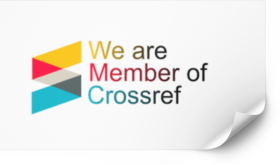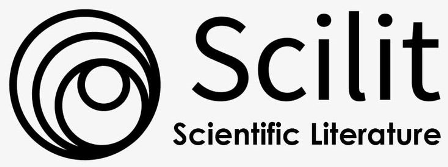Publication Ethics
Publication Ethics
Paraphrased Post-publication Discussions & Corrections for SETS Journal:
Ethics Framework:
- SETS adheres to COPE and its Editorial Board’s ethical codes for readers, authors, reviewers, and editors.
- This framework determines which research articles are published.
- Full details are available at http://publicationethics.org.
Publisher Responsibilities:
- Final decisions on manuscripts.
- Decisions based on professional judgment, not commerce.
- Maintain academic and research record integrity.
- Monitor ethical conduct of all stakeholders.
- Screening for plagiarism and data manipulation.
- Prompt corrections/clarifications/retractions as needed.
Editor Responsibilities:
- Full authority to accept/reject manuscripts.
- Maintain confidentiality of manuscripts.
- Decide on publications with other editors and reviewers.
- Preserve reviewer anonymity.
- Disclose and avoid conflicts of interest.
- Champion academic integrity and meet reader/author needs.
- Investigate plagiarism/data manipulation and publish corrections/clarifications/retractions/apologies as needed.
- Focus on intellectual content only.
- Maintain confidentiality of manuscript information.
- Unpublished material not used by editors for their own research without written consent.
Reviewer Responsibilities:
- Assist editors in publication decisions.
- Maintain confidentiality of reviewed manuscripts.
- Provide timely and constructive feedback to editors.
- Treat manuscripts confidentially and avoid using information for personal gain.
- Comments should be technical, professional, and objective.
- Recuse themselves from reviews with conflicts of interest.
- Disclose and avoid conflicts of interest.
Author Responsibilities:
- Manuscripts in English (except architectural engineering in Arabic) with proper grammar and terminology.
- Submit original, unpublished work not under consideration elsewhere.
- Ensure co-author approval for submission.
- Participate in peer-review process.
- Obtain institutional approval for relevant manuscripts.
- Allow minor editing for readability.
- Disclose financial support and sponsor/funder role.
- Designate corresponding author for communication.
- Promptly notify journal editors of significant errors in published work.
- Understand all submitted and published manuscripts are screened for plagiarism.
- Ensure all authors review and approve the final submission checklist.
Transparency Principles:
- Clear description of double-blind peer-review process and related policies on the journal website.
- Strong and well-respected Editorial Board with full member information readily available.
- Prominent contact information for the editorial office.
- Fully open access journal with free access to all published articles.
- Editor-in-Chief takes reasonable steps to identify and prevent research misconduct.
- Journal website demonstrates commitment to high ethical and professional standards.
- Unique journal name to avoid confusion with others.
- Conflict-of-interest disclosure form for authors.
- Clear journal publishing schedule and archiving plan.
Violation of Publication Ethics:
- Plagiarism is considered serious and detected using plagiarism-prevention software.
- Data fabrication and falsification are unacceptable.
- Simultaneous submission, duplicate publication, and redundant publications are prohibited.
- Improper author contribution/attribution and citation manipulation are unethical.
- Sanctions for violations include manuscript rejection, author bans, and editorial board/reviewer restrictions.
Handling Cases of Misconduct:
- SETS addresses ethical concerns diligently following a specific standard practice.
- The Editor informs the Editorial Office and sends a non-judgmental explanation request to the author.
- Serious misconduct is referred to the Editorial Board for potential future submission bans.
- Less severe infractions warrant a disapproval letter and a potential request for a published apology.
- The corresponding author and co-authors involved in the violation will have their work immediately rejected.
- They are prohibited from serving on the SETS Editorial Board or as reviewers.
- In extreme cases, notifications can be sent to author affiliations and a 5-year submission ban implemented.
- Serious fraud cases may result in article retraction with a linked retraction notice and online markings.
Journal Complaints and Appeals Process:
- Well-evidenced appeals to editorial decisions are welcomed and assessed by the journal editor(s).
- If valid, the appeal is reviewed by the editorial board and/or external peer reviewers.
- A new editorial decision based on the review results is made.
- SETS carefully considers complaints, appeals, and allegations in line with COPE guidance, both pre-and post-publication.
- Complaints are addressed by the journal editor(s) following COPE guidelines.
- Allegations may be referred to the appropriate institution for further investigation.
- The published record is updated accordingly, including post-publication corrections or retractions with links to the original article.
- A DOI and URL link between the notice and the full article enhances transparency and record integrity.
- Article removal is only considered in rare cases of public interest.



